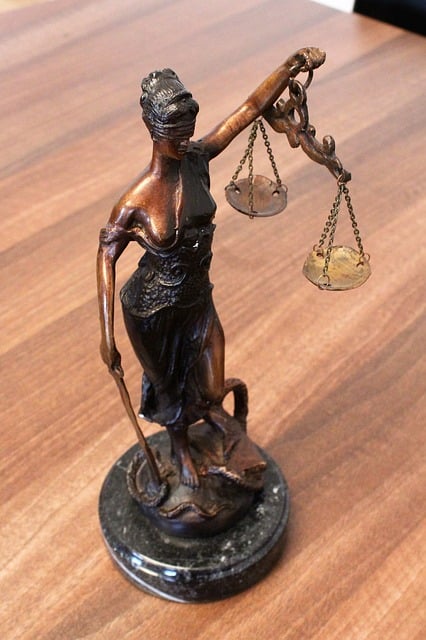5 Grim Yet Surprising Facts About Our Criminal Justice System

5 Grim Yet Surprising Facts About Our Criminal Justice System
Most people believe they know all about our criminal justice system. Television shows present us with a familiar semblance of it.
And every episode of almost every show brings us a miracle. The good guys win without fail. The bad guys are the ones that get arrested. The trial takes place the very next day. It’s all fair, and nothing goes wrong.
The reality is darker. And more complex.
Page Contents
- #1) Most cases never go to trial.
- #2) The prosecution doesn’t always have to work too hard to build a case.
- #3) The state doesn’t need a conviction to keep you locked away for years.
- #4) “Ghost warrants” can disrupt your life for decades.
- #5) It’s hard to sue police for making a mistake.>
#1) Most Cases Never Go To Trial.
The statistics vary from year to year.But over 90% of criminal cases end when the defendant agrees to a plea bargain.
Guilt or innocence becomes almost irrelevant. It becomes a matter of who is willing to accept what. Many take pleas to avoid jail time, or to minimize it. The certainty is often more attractive than rolling the dice.
Many judges and prosecutors threaten harsher sentences should the defendant dare to exercise his or her right to go to trial. This encourages even more plea bargains.
Public defenders often turn their attention to negotiating the best deals they can. They don’t have the time or ability to dive deep into cases the way private lawyers do. Often, talking their client out of jail, even at the expense of a criminal record, is the best they can do.
#2) The Prosecution Doesn’t Always Have To Work Too Hard To Build A Case.
On television, the cops turn over every stone to build their cases step-by-step. By the time the showdown happens the viewers all know the cops have the right man or woman.
And when they aren’t so careful, television prosecutors sternly tell them they don’t have a case. They need to go out. Get more. Do more.
In reality, this doesn’t happen. Prosecutors are banking on plea bargains. Cops tend to charge defendants with more than one offense so something sticks. Sometimes they even walk into trial and win with a bad case.
It’s changing, but juries are still conditioned to think arrests equal guilt. Racial biases can mean juries don’t evaluate reasonable doubt as much as they should.
Some prosecutors win trials with little more than flimsy evidence and a jailhouse snitch. Sometimes, the jury doesn’t even get to see or hear evidence which might exonerate a defendant. It takes a strong defense attorney to keep this travesty of justice from taking place.
#3) The State Doesn’t Need A Conviction To Keep You Locked Away For Years.
New York has done a lot to address the right to a speedy trial. There have been a lot of bail reform efforts, too.
But if you can’t pay bail or aren’t granted bail you could sit in jail for a long time as you wait for trial. Administrative errors, jam-packed dockets, and delays offered up by the prosecution are common. The result? Trial dates which can happen months or even years after the initial arrest.
Having a defense lawyer who can talk your bail down or talk a judge into releasing you without bail may be your only shot. Studies show you’re more likely to win your case if you’re out of prison during the trial prep period.
You do get credit for time served if you make a plea bargain to get out of jail later. You also get credit for time served if you’re convicted. Most find both facts to be cold comfort.
#4) “Ghost Warrants” Can Disrupt Your Life For Decades.
Imagine getting arrested over a warrant you resolved years ago. Maybe even served time over.
These are called “ghost warrants,” and they’re more pervasive than you might imagine.
“A ghost warrant stays alive like this: after a defendant serves his or her time, or charges are dismissed, a judge is likely to order any outstanding arrest warrants dissolved. But a clerk might fail to type the judge’s order into the court record, or to transfer that updated record over to the sheriff’s office to be entered into its database of warrants. So, when a deputy pulls that person over years later, it looks like they are still wanted for the same crime.” –The Guardian.
Make sure you speak to your attorney about getting ghost warrants resolved and dissolved as soon as possible.
#5) It’s Hard To Sue Police For Making A Mistake.
A case called Herring v. United States ensured it. If law enforcement can prove they acted “in good faith” they are very hard to hold accountable. Even when the actions they’ve taken destroy and disrupt other people’s lives.
Whether it’s a wrongful arrest, a Brady violation, or a ghost warrant, the courts are reluctant to hold law enforcement accountable.
In a climate like this, you need a fantastic defense lawyer on your side.
When you enter the criminal justice system the odds are against you. You need someone who is in your corner without question.
That’s where we come in. Contact Greco-Neyland to schedule your free consultation today.

